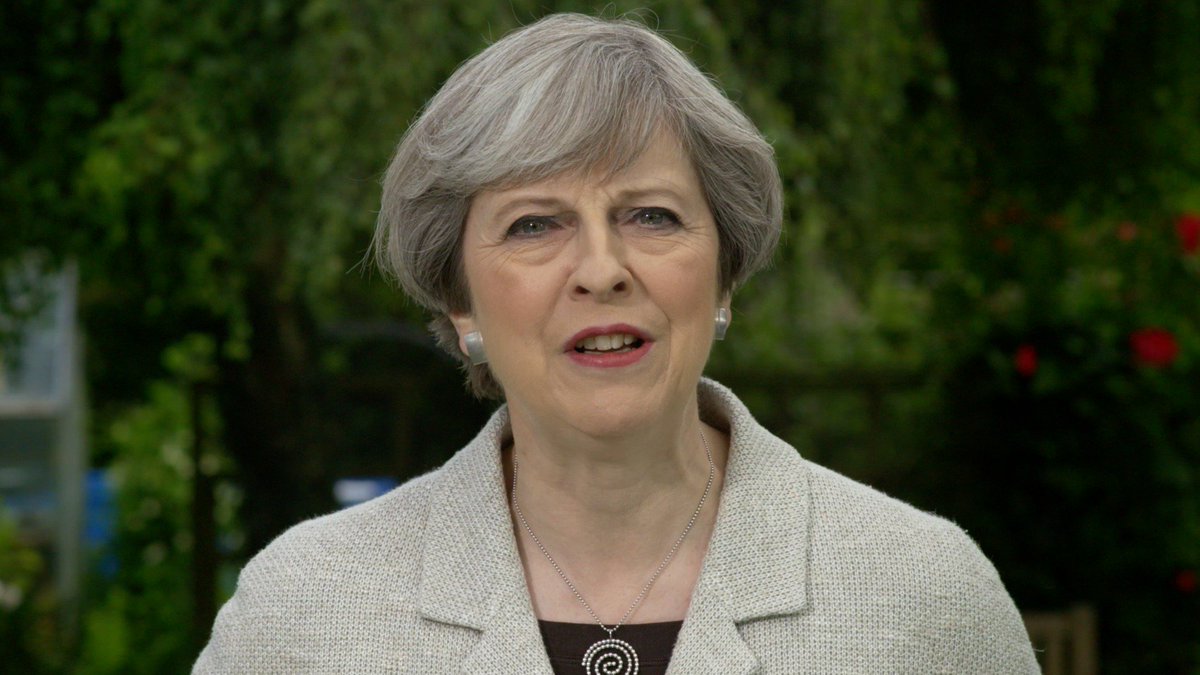PM Theresa May's Conservatives hold lead in opinion polls but Jeremy Corbyn's Labour Party trails closely behind.
Voting is under way in the UK for the country's second general election in little over two years after one one of the most tumultuous campaigns in recent decades.
A majority of voters on Thursday are expected to choose between Prime Minister Theresa May's Conservative Party and Jeremy Corbyn's opposition Labour Party.
Other choices on offer for the 45.7 million eligible voters include the Liberal Democrat Party, which wants to reverse a process for Britain to leave the European Union, or Brexit, and nationalist parties in Scotland and Wales.
Polls close at 10pm local time (21:00 GMT). Counting will take place overnight, and results are expected in the early hours of Friday.
When the election was first called for by May, in April, many observers thought Brexit would dominate campaigning - but that has given way to a raft of issues, top of which is security.
At least 30 people were killed and scores more wounded in the past three weeks in two separate attacks claimed by the Islamic State of Iraq and the Levant (ISIL) group.
The attacks in the northern city of Manchester and the capital, London, prompted fierce debate on security and what could have been done to mitigate the ISIL threat.
| May arrives with her husband Philip to vote in Berkshire [Toby Melville/Reuters] |
Corbyn attacked May's cuts to the police when she was home secretary from 2010 to 2016, while the prime minister hit back with criticism of the Labour leader's record of voting against anti-terror legislation.
"Campaigning had to be suspended twice after the attacks," Al Jazeera's Barbara Serra, reporting from London, said.
"We are expecting to see heightened security in many of the polling stations."
Economy, Brexit
Other issues include the economy, on which the two leading candidates have pledged two radically different visions.
Corbyn has promised to nationalise key industries, scrap tuition fees and build a million new homes, as well as taking an approach to Brexit that is less hostile to the EU.
May has threatened to walk away from talks if the EU does not offer an adequate deal, and domestically seems set to continue the Conservatives' austerity policies.
| Security, Brexit and austerity dominated the campaigning period [Marko Djurica/Reuters] |
Before the end of the campaign, May said voters had to choose "between me working constantly to protect the national interest and to protect our security, and Corbyn who frankly isn't up to the job".
Corbyn accuses the Conservatives of ruling for the benefit of the country's elite and promises to govern "for the many".
"Our Westminster system is broken and our economy is rigged, both are run in the interests of the few," he said in a speech earlier in the campaign.
"Labour is under attack because we are standing up to the elites who are determined to hijack Brexit and pay even less tax and take even more of the wealth that we all create."
In the polls, the Conservatives started the campaign with a lead of about 25 percent, but Corbyn has whittled it down to between one and 12 percentage points in the final projections before campaigning ended.
The large disparity in the polls has been put down to the methodology used - particularly estimates of how many young people will turn up to vote.
According to polls, Corbyn has the support of nearly three-quarters of people between the ages of 18 and 24 but that demographic also has the lowest turnout rates.
The extent to which supporters of both major parties use tactical voting to limit their opponents' chances also remains a possible factor in influencing the outcome.
Whoever wins will be tasked with negotiating Britain's departure from the EU, with formal talks due to start in little over a week.
Both Labour and the Conservatives have ruled out reversing the outcome of last year's referendum.




No comments:
Post a Comment